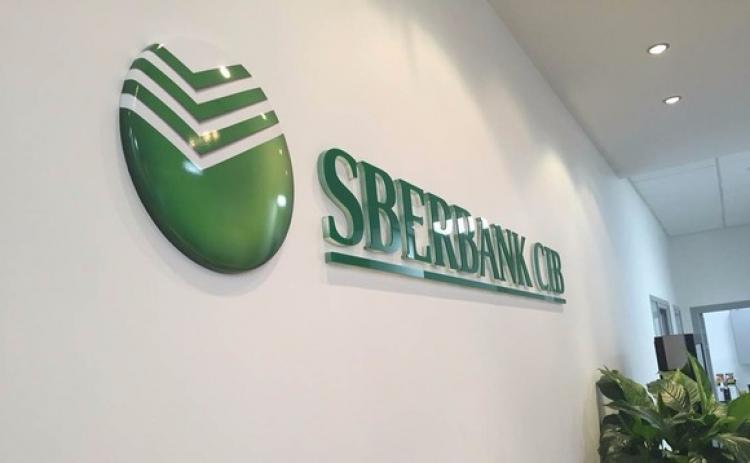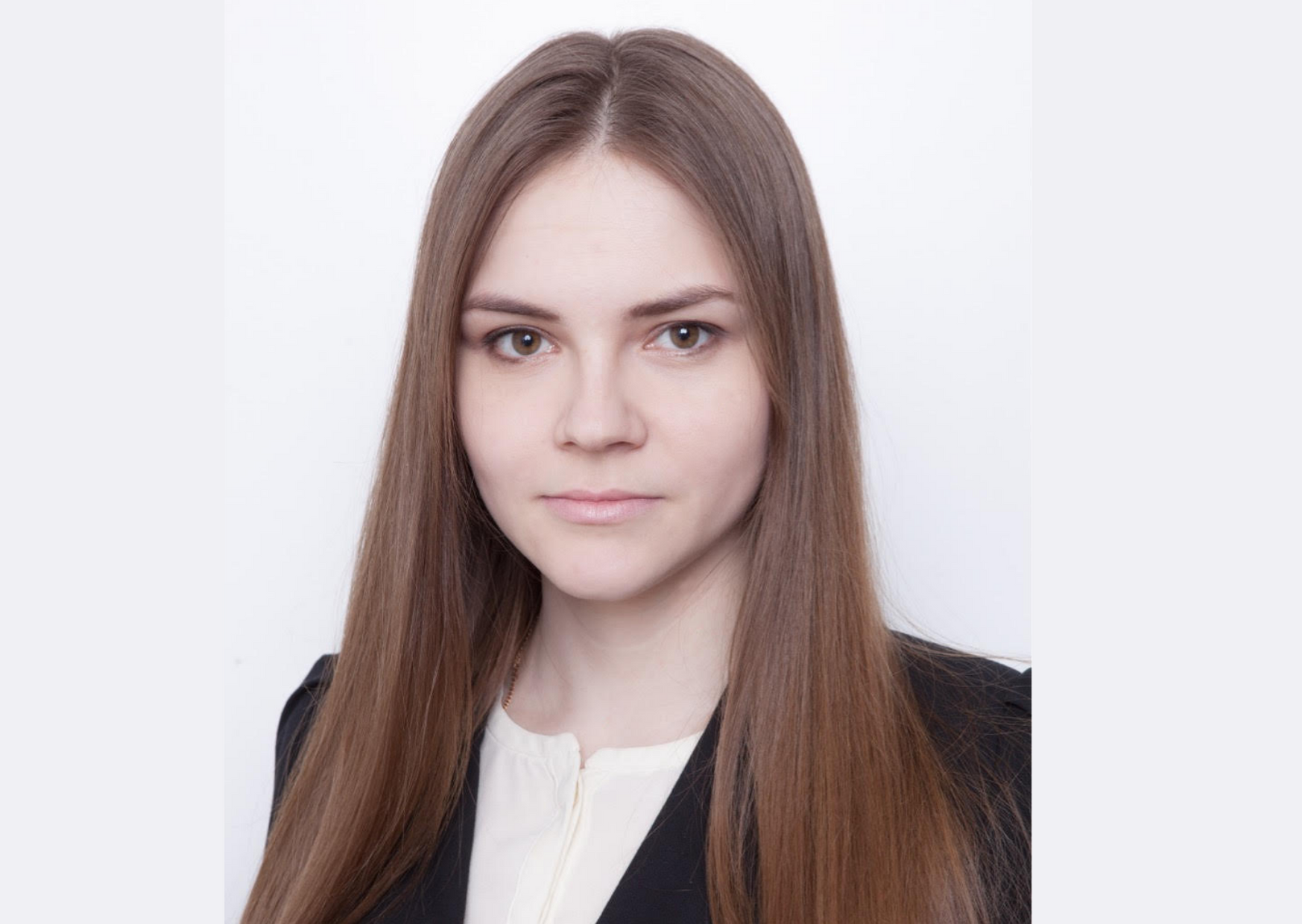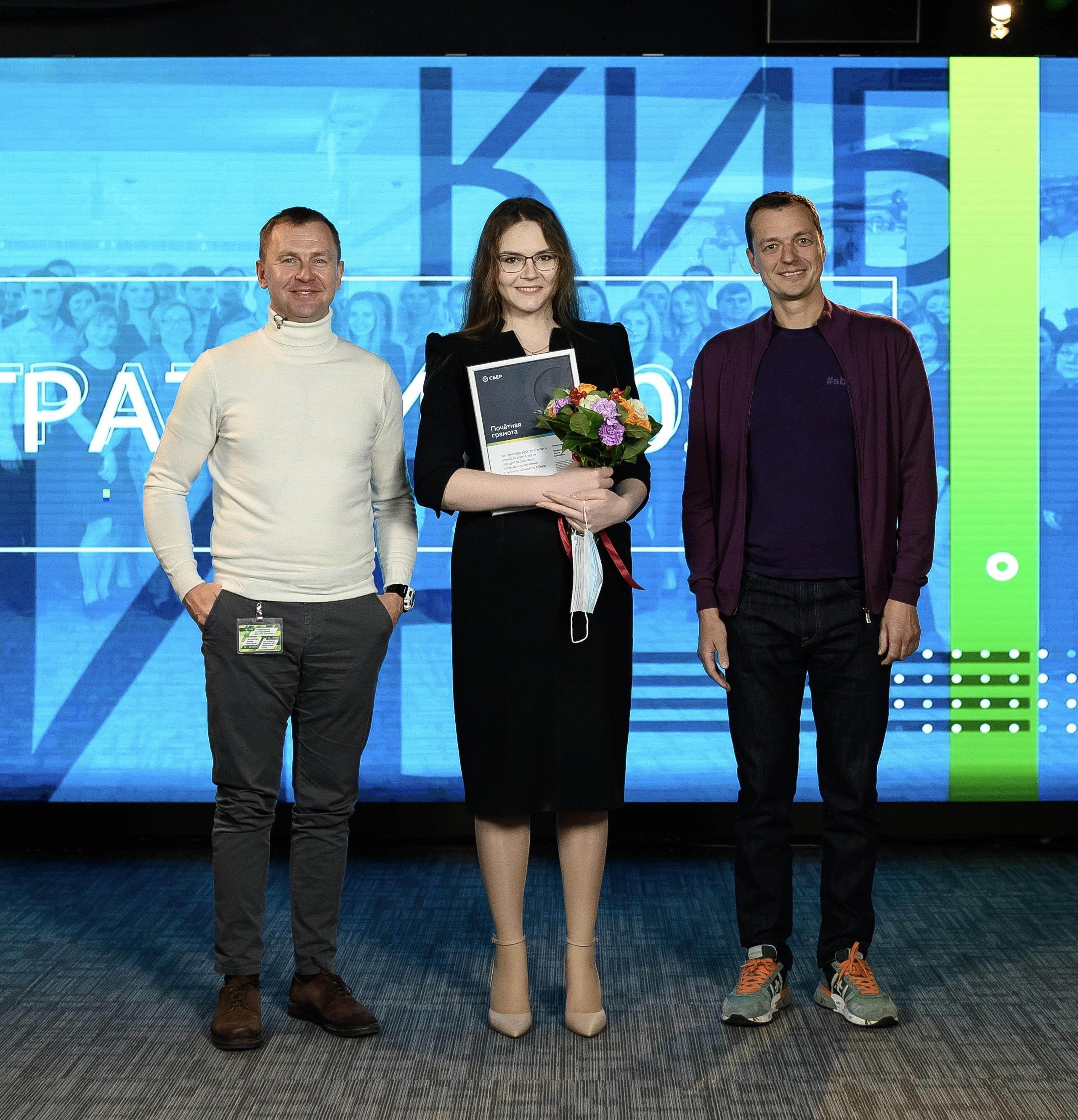'By setting a vibrant pace, ICEF enables you to keep abreast of the market'

Alisa Zakirova earned her master’s from ICEF in 2018. Currently a Fixed Income Research Analyst at Sber CIB, she deals particularly with sovereign bond. Here is what Alisa thinks sets ICEF Master’s in Financial Economics apart from its counterparts, why ICEF students are advanced users of international practices, and how working can be started during studies in a healthy way.
Why the name of ICEF rings a bell
My bachelor's programme was a double-degree one, delivered by Moscow Institute of Physics and Technology and the Russian Presidential Academy of National Economy and Public Administration. While working on my graduation thesis, which was about fixed income markets, it became clear to me I wanted to work in finance, so my next stage had to be a master’s programme in finance.
There are only two schools in Russia with solid training programmes in the field of economics with concentration on finance. They are HSE ICEF and NES. One reason why I chose to do my master’s at ICEF was because NES’ programme was fee-based while having nearly identical contents. The other reason was The London School of Economics: its contribution to the programme spanned absolutely everything from the syllabus to grading system to examination assessment to the delivery of lectures and seminars by the faculty of LSE. ICEF Master’s in Financial Economics is fully aligned to international standards. The degree certificate from LSE, which is conferred upon successful completion of the programme, can play a big role career-wise. While the names of Russian schools don’t seem to ring a bell with the majority of international investors, the name of LSE sounds familiar and is seen as a recognized label of quality.
Key advantages of ICEF Master’s Programme in Financial Economics:
The London School of Economics (LSE) Certificate and the double degree at LUISS (Italy)
Instruction is in English. The board of examiners for the core courses includes independent experts. The degree certificate, duly signed by LSE director, is an endorsement of internationally-recognized quality and consistency with standards of the UK Quality Assurance Agency for Higher Education. Since 2017, students are invited to study for one more degree – Master’s in Economics and Finance at the Guido Carli Free International University for Social Studies (LUISS).
All our faculty staff are PhD degree holders
Our faculty staff has a membership of visiting professors (of Stanford, Oxford, LSE) and practicing experts based in Russia (Sberbank, Gazprombank, KPMG, Deloitte, BCS, to name a few). It is a requirement that each lecturer receives a positive endorsement from ICEF International Academic Council.
Alumni Fellowship and Career Services
Launched in 2007, the programme has been completed by 200+ participants who are now solid professionals announcing to ICEF Career Services job offers from their employers. Even though this master’s level programme may not be a perfect match for those planning to combine studies with work, it offers professional experience opportunities through internships, some of which are salaried. Eleсtives are hosted by employers (McKinsey, Deloitte, among others), and there are regular student-alumni engagement events to build connection with the industry.
As an enrollee, I liked that the admission procedure involved portfolio competition. I find a win in an academic contest or a high score in the admission test to be an insufficient evidence of the applicant’s true ambition. There can be many circumstantial factors that can come into play to lead to the win or the high score. In contrast, the portfolio provides some extra context, allowing the applicant to describe their progress and merit achieved within their target domain. No less important is the interview as where you can give further details and talk to the programme managers.
Besides, there was one more point to be considered and that’s location. ICEF has its academic building advantageously located in the center of Moscow, while NES is based in Skolkovo. I also looked at the feedback provided by ICEF students about their learning environment: it seemed to be a highly cohesive community. The student rating system within ICEF master's programme is such that encourages mutual support, not competition.
Since ICEF concentrates a large part of its training on applied finance, its programme evolves in response to trends and changes in the industry, having among its lecturers lead experts in the banking industry. Students have the chance to meet alumni, who are invited to ICEF as professionals in their chosen field to provide exposure of real-world business experiences. At the same time, this master’s programme is universal in nature and is a good combination of theory and practice. Students intending to follow the academic track and study for a PhD will find this programme a good match, too.

Now that the curriculum has been expanded with big data courses, learners can receive the skills qualifying for the position of a data scientist. This is yet another confirmation that the programme remains up-to-date. Nowadays, skills such as programming and big data processing are a must-have for the financial workforce.
The role of motivation
I am a frequent speaker at the ICEF open day events. I think it is important to share one’s experience if that can help guiding prospective students’ choice. Along with the advantages I mentioned earlier, I often tell my own story and what can help to keep the motivation flying high.
After I had passed all the stages of the application process, I still didn't know if I would get the tuition fee free place. My online enrolment status seemed to remain unupdated — I was looking in the wrong place as it turned out later. I decided to continue my studies at the master’s level within the double-degree programme I enrolled in as a bachelor’s student. On the day before the last day of the admission campaign at ICEF, I got a call from Sabina Babaeva, head of MSc Office of Studies at ICEF. She said I was accepted and that they needed the original copies of my documents to enroll me. The news came as a surprise. Getting there in such a short time seemed like an impossible task.
The first constraint was my enrolment by another school. Anyone who ever did an exit checklist knows how long it takes to get it ticked by all departments from the library to the dorm. Secondly, I was out of Moscow at that time. I knew I wouldn’t make it for the evening flight, and the train wasn’t a fast option either.
It was Thursday evening. My parents got home from work and straight behind the wheel to drive me to Moscow, a 15-hour trip. We got on time on Friday and got things done. My story is yet another proof that attitude determines outcome. It is important that you know from the very start why you want to enroll and what you expect from the programme you’re applying.
What the industry looks for in graduates
University is where we get some basic capacity and get filtered, so to say. Your having passed this path means to the employer that you have had sufficient motivation and are willing to be trained further. Education plays a crucial role in any industry, but an even greater role is played by your motivation and being willing to improve yourself as a professional and personality.
We have to run as fast as we can if we want to keep up with the times. By setting a vibrant pace, ICEF enables you to keep abreast of the market and a lot of other things. In the workplace, finding a balance between quality and quantity may not be easy, but ICEF graduates will know how to get the work processes streamlined. The more processes you get running automatically, the faster you grow in your career.

The next big challenge to cope with is that of delegation. When you are a student at a leading university, you develop self-reliance, and there’s this pitfall of “it’s just easier to do things myself; no one can do it like I can.” Qualities like being able to teach younger generations, be useful to the older ones, generate ideas and think out of the box continue to be important as you progress in your career. Seniors can learn from the younger generation to be more flexible.
Getting off to the right start
It may not be a wise choice to combine work and studies in your first year because the curriculum is quite intense. My advice is concentrate on your studies and build your knowledge base. Your first year is also when you need to decide on the type of summer internship and go through the many time-consuming selection stages it involves. Juggling work and study is much easier when you are a second-year student.
That’s what I chose for myself, too. After completing my first year, I started as an intern at Sber CIB key accounts department and was gradually transferred, due to the restructuring, to Fixed Income Research at the end of my internship – the department I am still in.
How international environment helps career-wise
One advantage of the ICEF master’s programme is its language of instruction, which is English. Not only does this upgrade your English writing and speaking skills, it makes you a proficient user of financial English, allowing you to discuss professionally with colleagues globally. Another advantage is the programme’s being aligned to the international standards and the best of the teaching and learning practices available to the world’s best universities.
ICEF keeps you aware of the frontline events in financial industry, allowing to become part of the professional landscape
ICEF students have access to the resources of the LSE, extensive fellowship of graduates, and professors. The programme offers opportunities to study away on exchange. The very name of LSE on your resume makes you a worthy candidate in the eyes of the employers globally.
Where researcher skills come in handy when you work in the industry
For me, the researcher skills have had a decisive role. I’m in the research department that deals with public information and international clients. There have been two new analytical products Sberbank launched in 2020 within federal loan bond. One of them was initiated by me and involves non-residential investment in federal bond.
We’re tracking the finance flows from abroad, analyzing what factors can affect them and forecasting how these may change. One more analytical product that I have implemented relates to the in-depth analysis of the Ministry of Finance federal bond auctions. It involved identifying the contents of the bids and what they outlined as competitive advantages, the price range, impact on the secondary market, etc. Both the products have proved helpful to the clients of Sber based locally and internationally, having earned me a certificate of merit from Sber President Herman Gref and the gratitude from the RF Ministry of Economic Development for the contribution to the monitoring and analysis of the initial public offerings.